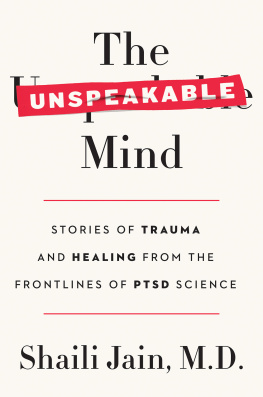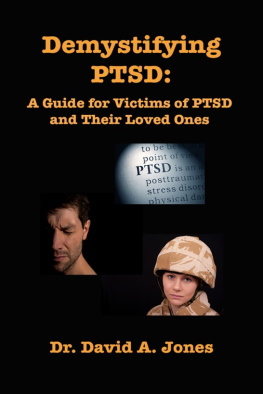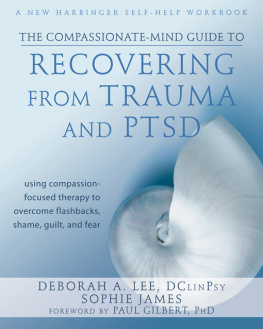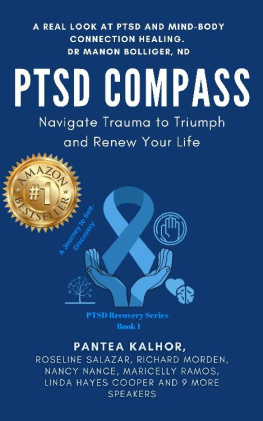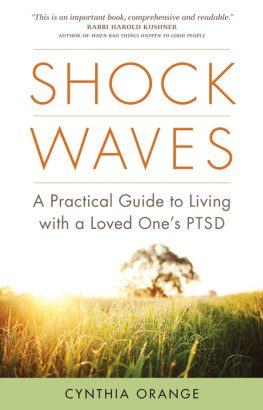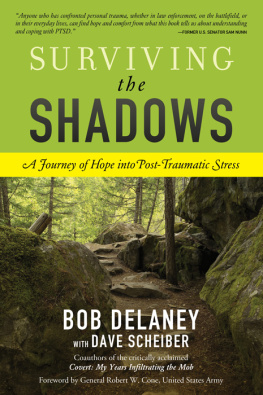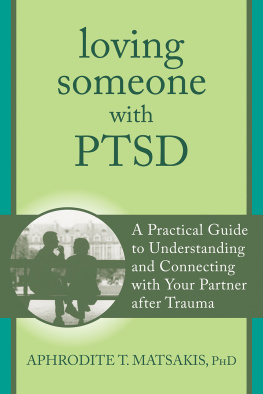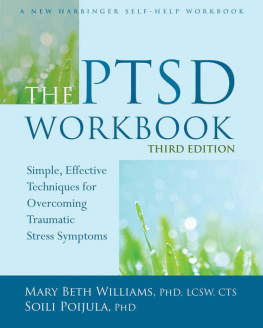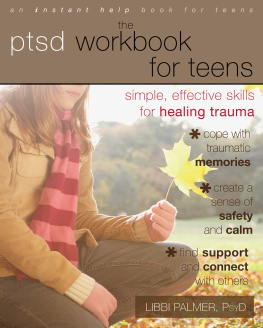Shaili Jain - The Unspeakable Mind: Stories of Trauma and Healing from the Frontlines of PTSD Science
Here you can read online Shaili Jain - The Unspeakable Mind: Stories of Trauma and Healing from the Frontlines of PTSD Science full text of the book (entire story) in english for free. Download pdf and epub, get meaning, cover and reviews about this ebook. year: 2019, publisher: HarperCollins, genre: Science fiction. Description of the work, (preface) as well as reviews are available. Best literature library LitArk.com created for fans of good reading and offers a wide selection of genres:
Romance novel
Science fiction
Adventure
Detective
Science
History
Home and family
Prose
Art
Politics
Computer
Non-fiction
Religion
Business
Children
Humor
Choose a favorite category and find really read worthwhile books. Enjoy immersion in the world of imagination, feel the emotions of the characters or learn something new for yourself, make an fascinating discovery.
- Book:The Unspeakable Mind: Stories of Trauma and Healing from the Frontlines of PTSD Science
- Author:
- Publisher:HarperCollins
- Genre:
- Year:2019
- Rating:5 / 5
- Favourites:Add to favourites
- Your mark:
The Unspeakable Mind: Stories of Trauma and Healing from the Frontlines of PTSD Science: summary, description and annotation
We offer to read an annotation, description, summary or preface (depends on what the author of the book "The Unspeakable Mind: Stories of Trauma and Healing from the Frontlines of PTSD Science" wrote himself). If you haven't found the necessary information about the book — write in the comments, we will try to find it.
From a physician and post-traumatic stress disorder specialist comes a nuanced cartography of PTSD, a widely misunderstood yet crushing condition that afflicts millions of Americans.
Dr. Jains beautiful prose illuminates this widely misunderstood condition and makes for fascinating reading. It is a must for anyone who has a survived trauma, their loved ones and the healthcare professionals who care for them. Irvin Yalom, bestselling author of When Nietzsche Wept
The Unspeakable Mind is the definitive guide for a trauma-burdened age. With profound empathy and meticulous research, Shaili Jain, M.D.a practicing psychiatrist and PTSD specialist at one of Americas top VA hospitals, trauma scientist at the National Center for PTSD, and a Stanford Professorshines a long-overdue light on the PTSD epidemic affecting todays fractured world.
Post-Traumatic Stress Disorder goes far beyond the horrors of war and is an inescapable part of all our lives. At any given moment, more than six million Americans are suffering with PTSD. Dr. Jains groundbreaking work demonstrates the ways this disorder cuts to the heart of life, interfering with ones capacity to love, create, and workincapacity brought on by a complex interplay between biology, genetics, and environment. Beyond the struggles of individuals, PTSD has a tangible imprint on our cultures and societies around the world.
Since 9/11 and the wars in Iraq and Afghanistan, there has been a huge growth in the science of PTSD, a body of evidence that continues to grow exponentially. With this new knowledge have come dramatic advances in the effective treatment of this condition. Jain draws on a decade of her own clinical innovation and research and argues for a paradigm shift in how PTSD should be approached in the new millennium. She highlights the myriads of ways PTSD care is being transformed to make it more accessible, acceptable, and available to sufferers via integrated care models, use of peer support programs, and technology. By identifying those among us who are most vulnerable to developing PTSD, cutting edge medical interventions that hold the promise of preventing the onset of PTSD are becoming more of a reality than ever before.
Combining vividly recounted patient stories, interviews with some of the worlds top trauma scientists, and her professional expertise from working on the frontlines of PTSD, The Unspeakable Mind offers a textured portrait of this invisible illness that is unrivaled in scope and lays bare PTSDs roots, inner workings, and paths to healing. This book is essential reading for understanding how humans can recover from unspeakable trauma. The Unspeakable Mind stands as the definitive guide to PTSD and offers lasting hope to sufferers, their loved ones, and health care providers everywhere.
Shaili Jain: author's other books
Who wrote The Unspeakable Mind: Stories of Trauma and Healing from the Frontlines of PTSD Science? Find out the surname, the name of the author of the book and a list of all author's works by series.

